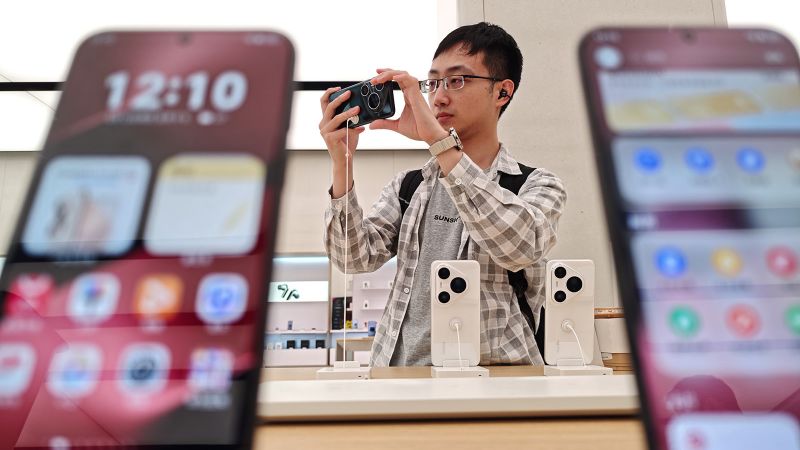Taiwan has recently escalated its efforts to align more closely with the United States’ crackdown on entities seen as instrumental in advancing China’s artificial intelligence (AI) capabilities. This initiative led to the inclusion of two significant Chinese corporations—Huawei Technologies and Semiconductor Manufacturing International Corporation (SMIC)—on Taiwan’s export control list. As a response to growing concerns over potential threats to national security and the proliferation of weapons, the International Trade Administration in Taiwan updated its strategic high-tech commodity entity list, which now encompasses these two giants along with a myriad of firms based in China, Myanmar, Russia, Iran, and Pakistan.
The introduction of these new export controls indicates Taiwan’s proactive stance in addressing US-China tensions that focus largely on advanced technologies such as semiconductors and AI. Washington’s apprehensions have intensified over the use of American technologies in Chinese military applications, prompting a slew of regulatory measures. For instance, during the last month of his administration, former President Donald Trump took steps to curb sales of chip design software to China as part of a broader trade war with Beijing. This trend has persisted under the Biden administration, which further tightened restrictions on sales of advanced semiconductors to China to mitigate potential risks to US national security.
Taiwan’s decision can be viewed as a political maneuver to fortify its ties with the US, highlighted by Taiwan’s recognition of its geopolitical role in the region. It is worth noting that China has long claimed Taiwan as part of its territory despite never having exercised control over it. The move to add Huawei and SMIC to the export control list serves as a demonstration that Taiwan supports a comprehensive approach in collaboration with the US in safeguarding tech regulations against Beijing’s advancements.
Previously, Taiwan Semiconductor Manufacturing Company (TSMC), renowned as the world’s largest contract chipmaker and a key supplier to companies like Apple and Nvidia, manufactured microchips for Huawei until 2020 when US bans came into effect. This led Huawei to seek alternative suppliers, increasingly relying on SMIC, which has also faced its own set of restrictions from the US government. Experts believe that Taiwan’s recent actions are largely symbolic, given that US restrictions are already in place. Industry analysts express that this tightening of export controls reflects Taiwan’s intention to align its regulations more closely with those of the US.
One prominent expert, Min-yen Chiang from the Research Institute for Democracy, Society, and Emerging Technology, emphasized that the decision highlights Taiwan’s commitment to regulating sensitive exports proactively rather than passively following US directives. The actions taken by Taiwan, thus, mirror a strategic acknowledgment of the security landscape shaped by US interests in the region, particularly regarding the looming threats from China.
Reports of TSMC-made chips appearing in Huawei products have inflamed concerns in Washington, leading to investigations by the US Department of Commerce. In the wake of the discovery that TSMC chips were reportedly rerouted to Huawei, the US has mulled substantial penalties against TSMC for possible infractions of export regulations. As more advanced chips fuel Huawei’s innovations—including the recent introduction of their Mate 60 smartphone, which utilizes a chip developed by SMIC—authorities are increasingly wary of indirect supply chain loopholes that could empower Chinese firms.
While the constraints imposed by the US have initially detracted from Huawei’s market positions, the firm is exploring pathways to develop advanced chip technologies in-house. Analysts argue that the tightening of export controls ultimately accelerates China’s push towards achieving semiconductor self-sufficiency, a trajectory that may cultivate the growth of domestic suppliers within the Chinese tech arena. Despite misgivings, Huawei’s founder, Ren Zhenfei, has downplayed concerns regarding US technology restrictions, suggesting that adaptive strategies could enhance computational performance even with existing limitations.
In summary, Taiwan’s recent regulatory actions against Huawei and SMIC exemplify a nuanced approach to international relations amid rising technology competition. They also highlight the complexities entwined within the geopolitical landscape involving the US, Taiwan, and China as each strives for leadership in advanced technologies critical to national security and economic power.



